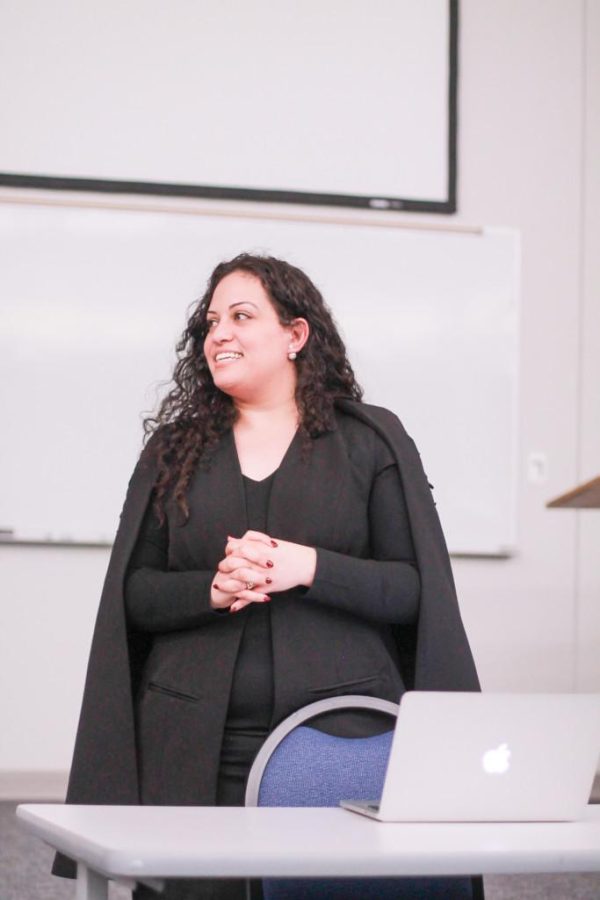Story by Sabra Jackson, Staff writer
Murray State hosted Fawzea (Faye) Abusalah, immigration attorney, to speak at a seminar on the travel ban ordered by President Trump Wednesday evening.
Abusalah is from Dearborn, Michigan, and has been practicing law for nearly ten years. She addressed students and faculty on the changes in the orders and how the ban affects the Murray State community.
Abusalah said Trump gave two executive orders, banning seven Muslim countries from re-entering the U.S.
“The first executive order banned all individuals from seven predominantly Muslim countries from entering the United States,” Abusalah said.
This first ban, ordered in January, prevented lawful permanent residents, who have green cards, from re-entry into the U.S.
Abusalah said she was working at the port of entry located in Michigan. While there, she said there were many individuals who were either turned away or detained by customs officers.
A few days later, the White House released a statement saying the order did not pertain to lawful permanent residents.
The second executive order did not include Iraq or people who held lawful valid visas, as well as those who were lawful permanent residents. This order was brought into effect in March.
“I was advising all of my clients to stay put [in the country],” Abusalah said.
In order to get a visa, individuals must go through an extensive application and interview process, which includes a criminal clearance, a medical exam and a civics test.
Abusalah told the audience of one of her worst cases where a 62-year-old woman was denied entry on her way to attend her son’s funeral. Abusalah believes the woman was denied because another son had already applied for a visa for his mother. The application was pending at the time of her denied entry.
Once you apply for a visa, Abusalah said the chances of getting approved decrease. The officers at customs and border protection will question why a person would visit for a short time and then leave before claiming citizenship.
Winfield Rose, professor of political science, said it is not really a ban, but more of a “pause to allow other processes to make a claim.”
Abusalah said customs and borders are not sure of what will happen in the future as changes may come. She said the executive order asked for suggestions on how to improve the vetting process.
An audience member asked Abusalah about the seven countries involved in the ban and why there were no other Muslim countries. She said Trump believed these seven countries posed the most concern as far as terrorism in comparison to other Muslim countries.
“The basis was that they were possible terrorists,” Rose said.
Brock Allen, senior from Gatlinburg, Tennessee, attended the seminar as a recommendation from a professor. Allen said many members of his family are immigrants, which sparked his interest in immigration and law.
“I thought it was really great and the speaker was very informative and was very good at dealing with all the ensuing questions from both sides of the spectrum on this issue,” Allen said.” It shows you the really different dynamics of people from the conservative side and the liberal side.”




























































































